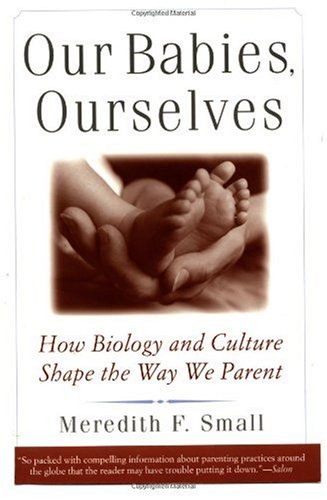The Cultural Bias of the "Growth Curve"
A more flexible construct of normality also has practical applications. As all parents in Western culture know, there is a "normal growth curve" against which all infants are compared when they are brought in for visits to the pediatrician. This standard is used to evaluate babies' growth, and if die baby falls drastically below die curve, pediatricians recommend intervention. But pediatrician Glen Flores, who codirects the Pediatric Latino Clinic at the Boston University School of Medicine, points out that comparing Latino babies to that "normal" curve is a mistake. That initial and now widely accepted curve was developed based on a group of white bottle-fed babies from Yellow Spring, Ohio, during the I950s.^ This information is important not only because white babies are born heavier, but bottle-fed infants also grow faster and fatter than breast-fed infants, regardless of their ethnicity. In this particular case. Latino babies in America are also born smaller and therefore follow a slower growthrate curve. The curve, then, in reality is "normal" only for other white bottle-fed infants. Using that curve to evaluate Latino babies may cause pediatricians to intervene in unnecessary and inappropriate ways. And how disturbing it must be for Latino parents to be shown that curve and made to feel that their baby is not healthy. What is needed, points out Flores, is more data on birth weights, growth curves and such from various ethnic populations—that is, a widening of the concept of the normal growth curve.
Notes:
Infants are compared to a growth average, but this average is based on on white, Western infants, other breeds of humans fall beneath or above the curve, resulting in their being considered "abnormal" when they are not.
Folksonomies: babies development normality cultural norms growth
Taxonomies:
/family and parenting/babies and toddlers (0.540974)
/society (0.226535)
/family and parenting/children (0.211688)
Keywords:
normal growth curve (0.974493 (negative:-0.261266)), Latino babies (0.788693 (negative:-0.540411)), widely accepted curve (0.751301 (neutral:0.000000)), slower growthrate curve (0.743015 (negative:-0.262322)), die curve (0.646878 (negative:-0.409030)), Pediatric Latino Clinic (0.612583 (neutral:0.000000)), bottle-fed infants (0.611717 (negative:-0.339372)), white bottle-fed babies (0.610573 (neutral:0.000000)), white bottle-fed infants (0.603200 (negative:-0.339372)), pediatrician Glen Flores (0.600183 (neutral:0.000000)), Boston University School (0.556502 (neutral:0.000000)), Western infants (0.542065 (neutral:0.000000)), various ethnic populations—that (0.537256 (neutral:0.000000)), breast-fed infants (0.511427 (neutral:0.000000)), white babies (0.499983 (neutral:0.000000)), Latino parents (0.483598 (negative:-0.465756)), growth average (0.465649 (neutral:0.000000)), Cultural Bias (0.465070 (negative:-0.413328)), flexible construct (0.455816 (positive:0.773236)), practical applications (0.455480 (positive:0.773236)), Western culture (0.441556 (neutral:0.000000)), particular case (0.441345 (neutral:0.000000)), die baby (0.436783 (negative:-0.409030)), Yellow Spring (0.435519 (neutral:0.000000)), inappropriate ways (0.435171 (negative:-0.818499)), birth weights (0.433999 (neutral:0.000000)), growth curves (0.432439 (neutral:0.000000)), pediatricians (0.377513 (negative:-0.818499)), normality (0.342446 (positive:0.773236)), mistake (0.332544 (negative:-0.611826))
Entities:
Glen Flores:Person (0.768593 (neutral:0.000000)), Pediatric Latino Clinic:Organization (0.658255 (neutral:0.000000)), Ohio:StateOrCounty (0.417659 (neutral:0.000000)), Boston University School of Medicine:Organization (0.404948 (neutral:0.000000)), America:Continent (0.380685 (negative:-0.262322))
Concepts:
Pediatrics (0.972022): dbpedia | freebase | opencyc
Infant (0.912084): dbpedia | freebase | opencyc
Medicine (0.666652): dbpedia | freebase
Medical school (0.652516): dbpedia | freebase | opencyc
Ethnic group (0.569968): dbpedia | freebase | opencyc
Normal distribution (0.536026): dbpedia | freebase
Physician (0.531702): dbpedia | freebase
Childbirth (0.481929): dbpedia | freebase





